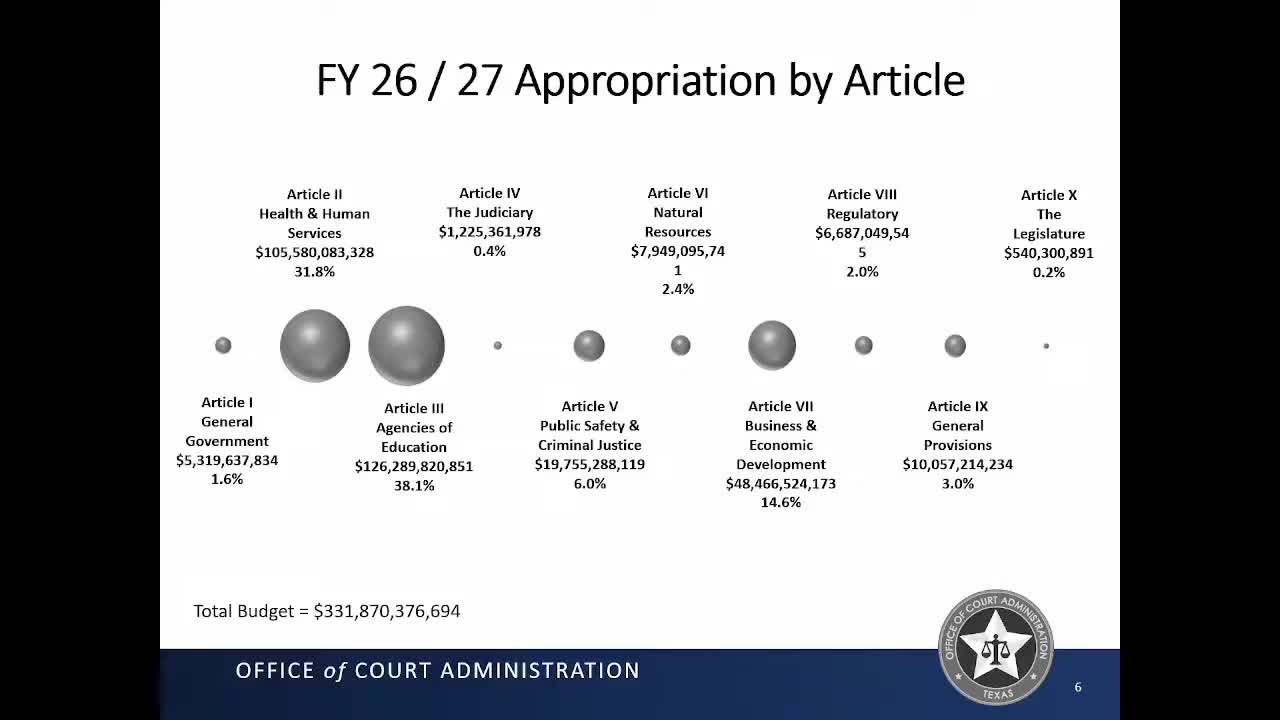Article not found
This article is no longer available. But don't worry—we've gathered other articles that discuss the same topic.

Council flags attorney shortages in child‑protection cases; TIDC and OCA to track capacity and fee schedules

Indigent defense agency gets funding boost but not full pipeline request; omnibus SB 2111 passes

Court Analytics Texas and FY24 data show rising filings in many categories; OCA starts case‑level feeds

Legislature boosts judiciary budget: staff raises, court tech funding and new positions

Legislature approves 25% judicial pay raise; SB 293 adds conduct-reporting and JCC changes

